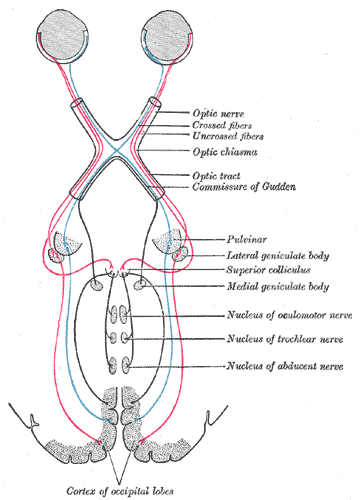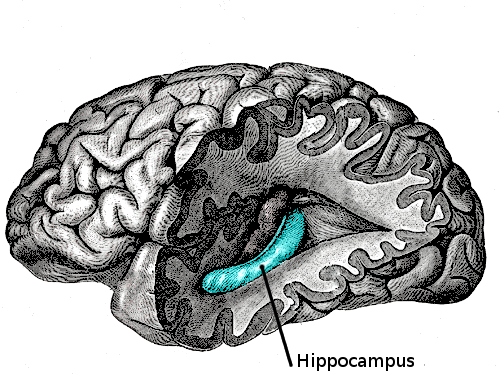The unfocused gaze and eye direction when recalling a memory or imagining something.
Eye movements assist in recalling spatial visual memories. The eyes move in the direction of where the object was in relation to the person, when perceived. Restricting eye movements impairs memory recall.
In a recent study we reported that when eye movements were prohibited for participants who orally described pictures from memory, their recollections became altered and impaired (Johansson, Holsanova, Dewhurst, & Holmqvist, (in press). Journal of Experimental Psychology: Human Perception and Performance). (1)
...
Results provide evidence that eye movements do have an active and supportive role when visuospatial information is recalled by highlighting the circumstances under which a visual memory is hampered. Additionally, findings suggest that the influence of "eye movements to nothing" is primarily related to the processing and retrieval of spatial information. (1)
The hippocampus store long term spatial memory.
The hippocampus is the storage centre for long term spatial memory, as it is central to the storage of much our the brains long term memory. It is not physically connected the the optic nerve, nor is it connected to the eye muscles.

Image: Optic nerves, Gray's Anatomy (copyright expired)

Image: Hippocampus within the brain, Gray's Anatomy (copyright expired)
This post How do memories come up for no apparent reason? Is this evidence that we remember everything? offers some idea about memory storage types.
This is not a complete answer, I have not referenced comparable studies with other species.
Is this effect related to other phenomena that are life threatening and deprive areas of the body and/or perception deemed unnecessary for survival?
No, it is simply the way the body processes and recalls spatial information. The eyes move into the direction they were in when recalling spatial information to place the person in the same spatial orientation from that object.
References:
Eye movements play an active role when visuospatial information is recalled from memory
Johansson, et al doi: 10.1167/12.9.1256 (1)
Spatial memory and the human hippocampus.
Shrager Y, et al
Spatial Memory and Hippocampal Function: Where
are we now?
Mark Good

